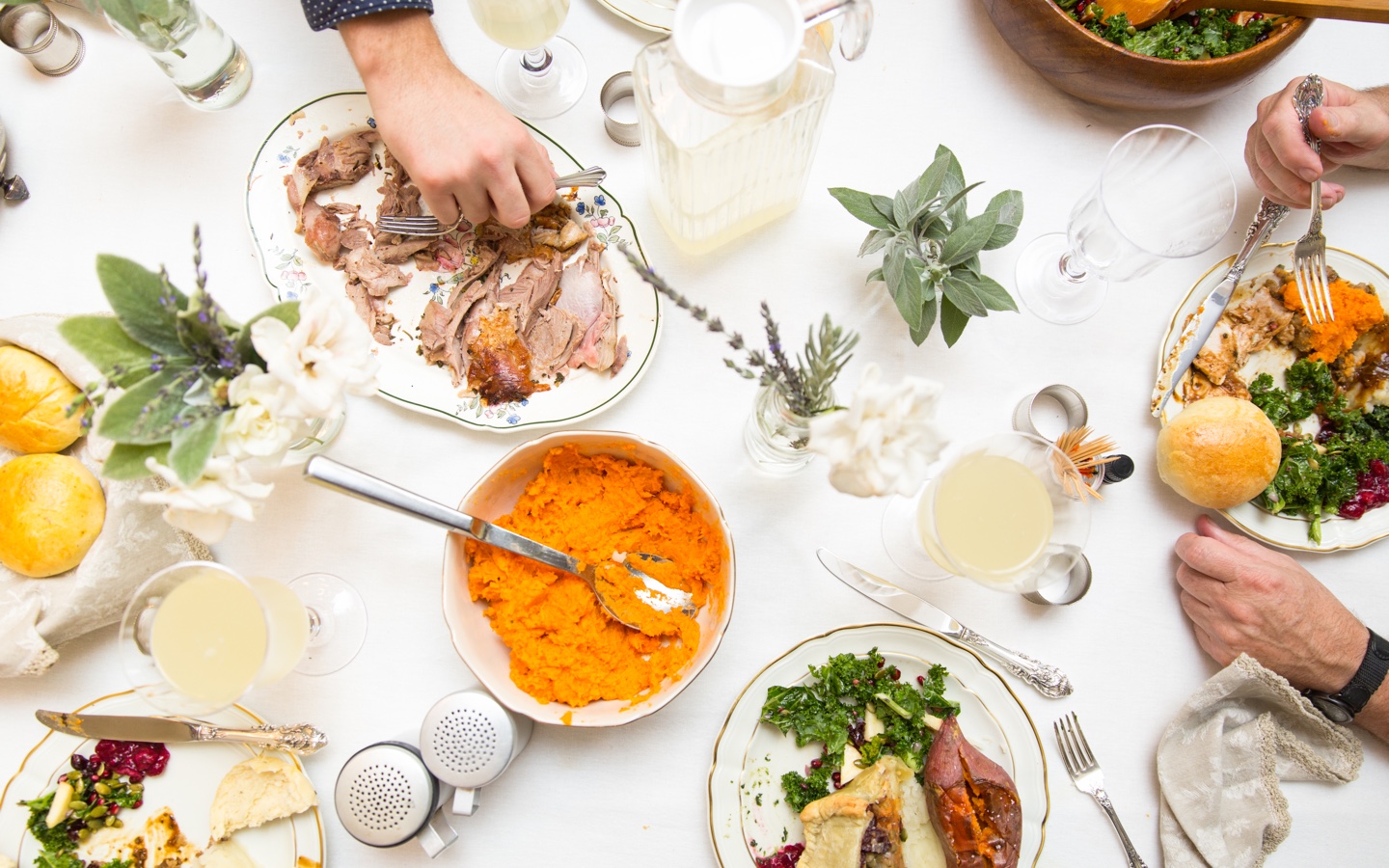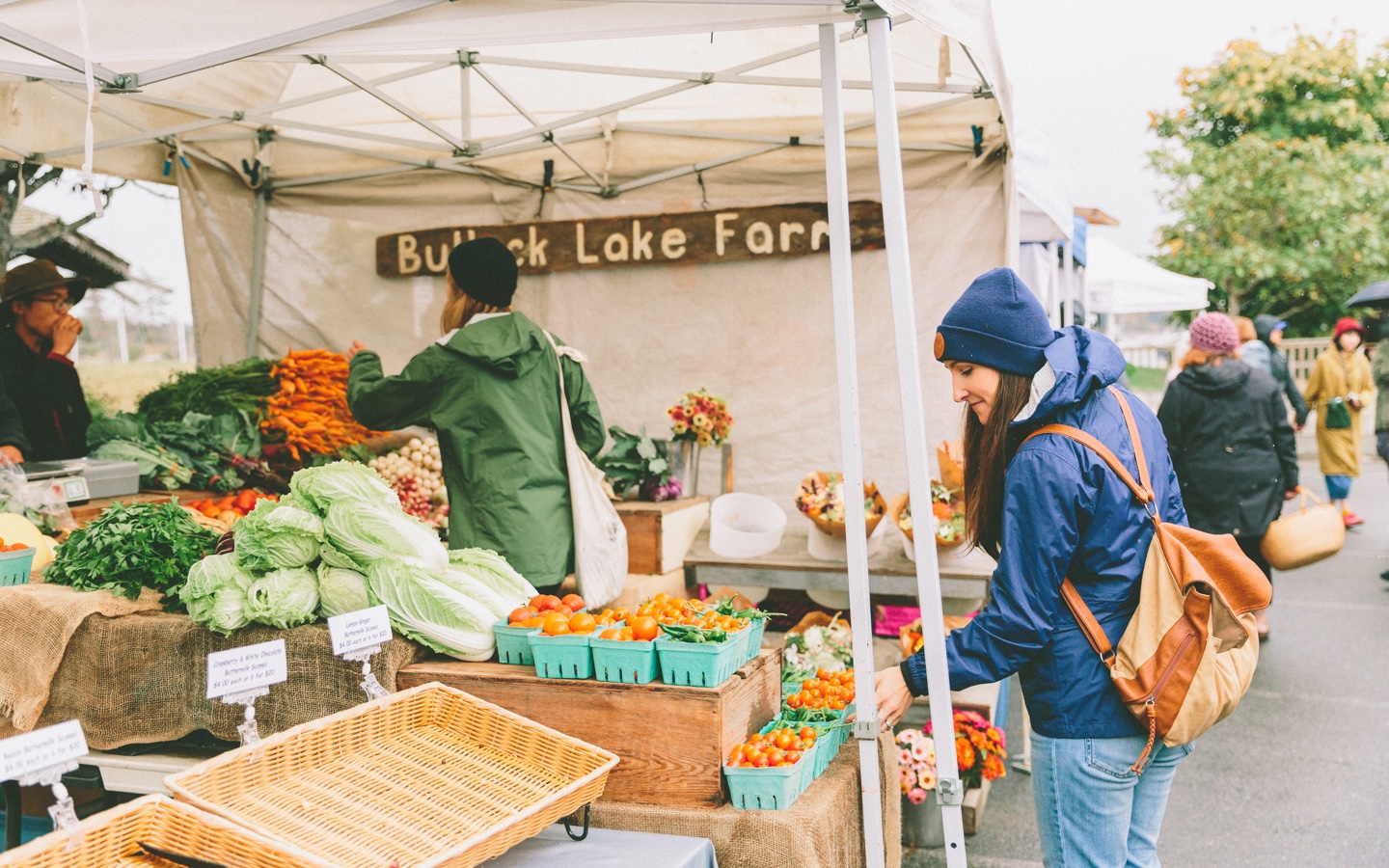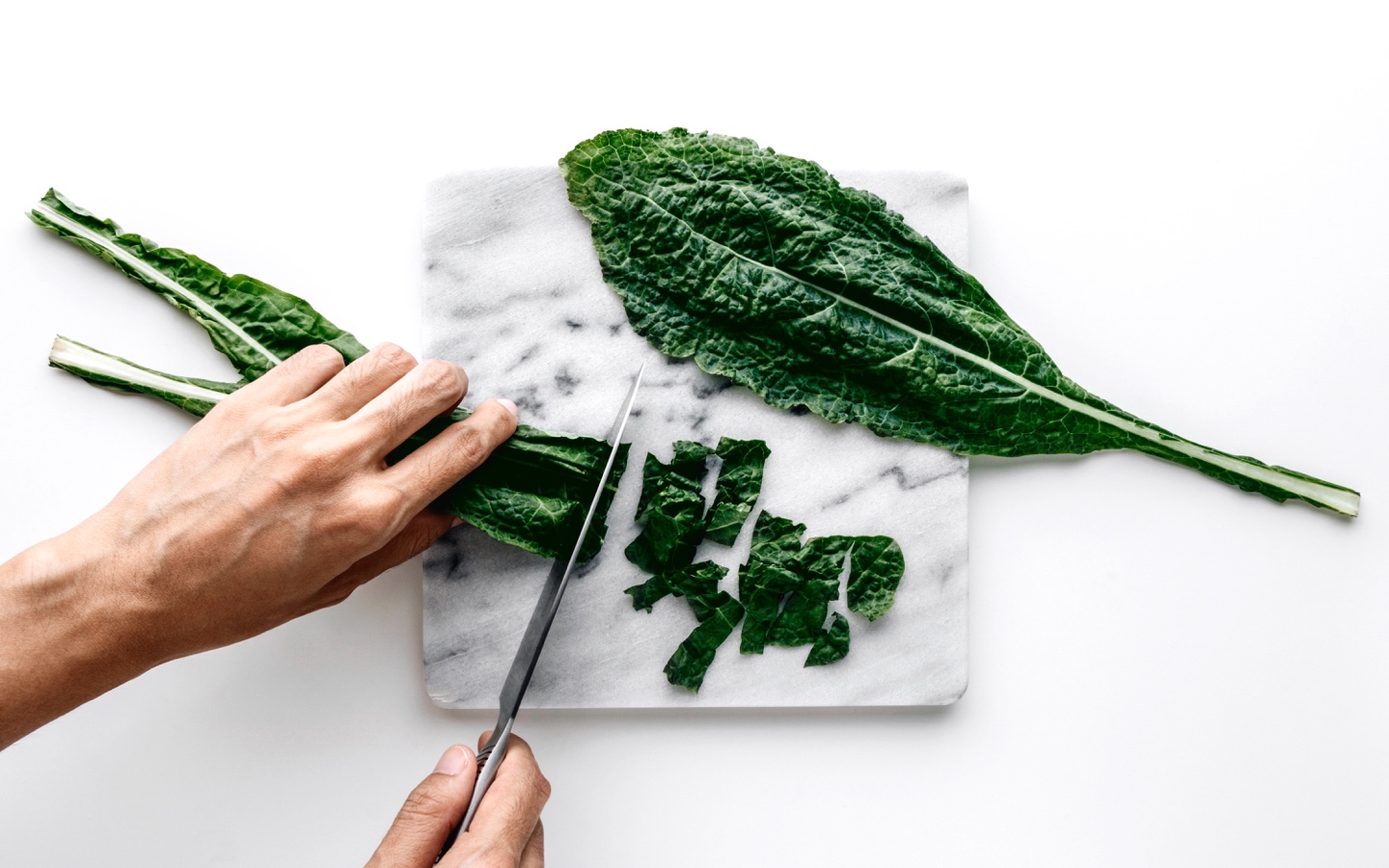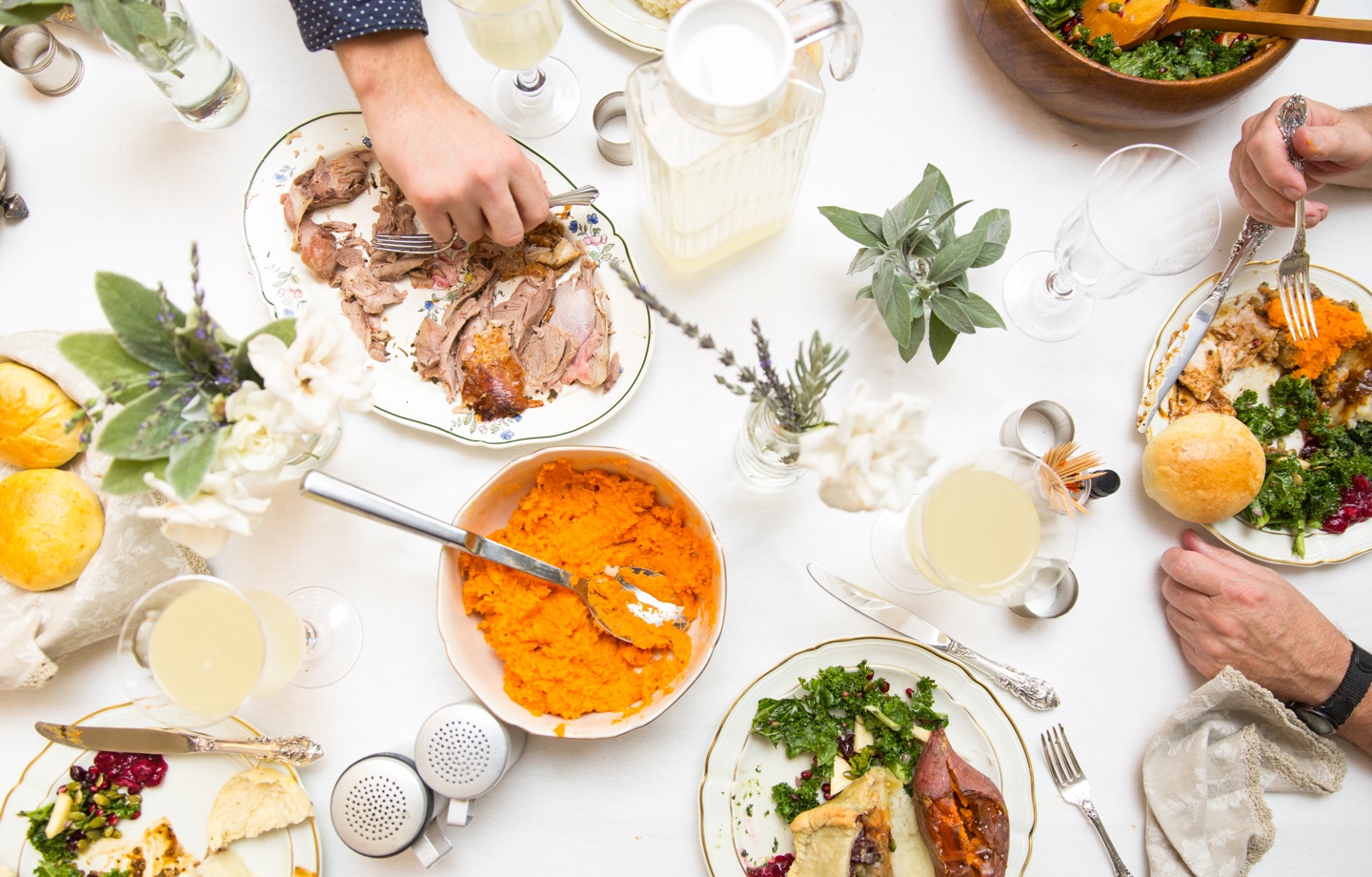We hear this all the time as Americans, but it’s the truth—we are SPOILED by convenience in this country. And hey man, what a life.
We can binge-watch reruns of The Office. We can have dinner delivered in under 30 minutes. And we can buy bananas any time of the year, anywhere in the US.
But when it comes to
It’s not a pretty cycle, and ultimately, the most sustainable way to shop for produce is to shop locally and seasonally.

It’s not easy to do at a grocery store, but for CSA members, getting local and seasonal produce is easy and takes ALL of the guesswork out of the process.
What Is a CSA?
CSA stands for community-supported agriculture. In this model, customers become ‘members’, subscribing to a farm’s box on a recurring basis. Think of it as the original meal delivery service—even though you usually pick your box up at a local meeting place.
The financial life of a farmer is a tough one, especially if they’re not playing by industrial agriculture’s rules. Sales for small, local, organic farms can be sporadic, and it can be next to impossible to live on the income from their farms.
CSA’s help farmers by creating guaranteed, recurring sales. It keeps them in the business of doing what they do best: sustainably growing crops.
Customers get all of the perks of going to the farmer’s market, without having to keep a pile of cash on them and tow a wagon of groceries. You get a seasonal box of some of the most local foods you’ll ever eat, and get the satisfaction of supporting people who are literally saving the planet with how they grow things.

Things to Keep In Mind Before You Sign Up
CSA boxes aren’t like your typical grocery delivery service, and there are some things you’ll need to keep in mind before you decide it’s the right fit for you:
#1—Your Meal Prep Will Become Seasonal
Seasonal produce means you get what’s being harvested, not whatever you want. As a result, you might need to adjust your expectations and learn to plan your meals around what the farmers are selling instead of whatever you see on Pinterest.
#2—Be Open to Trying New Things
A benefit that some people find a drawback to CSAs is that you get whatever’s growing and getting harvested—and sometimes, that means I have to roast some beets.
I hate beets.
But when my local CSA kept putting them in my box, I could either keep giving them
The point is, keep an open mind and find new ways to cook things, and you won’t have a problem with getting those fruits and veggies that you would normally pass on at the market.
#3—Become a Planner
I spoke with Becca Stallings from the Kitchen Stewardship blog to learn more about how exactly you plan and process a CSA box so that nothing goes to waste. Here’s what she had to say:

“When you pick up that pile of produce, ask yourself these questions:
What do I want to swap or give away?
What needs to be eaten in the next two days?
What can wait until later?
What needs to be preserved?
What’s the plan?”
You don’t have to start freezing and cooking right away, but it’s a good idea to start categorizing your food as soon as you get it so you don’t waste your CSA box.
This is what real agriculture looks like. Some things grow in some areas, and some things don’t. When you use a CSA to buy your produce, you get a sense for just how much produce gets trucked into your region to the stores, and the impact is DAUNTING.
The amount of fuel and packaging used to transport produce from all over the world to grocery stores in the US is astounding. CSAs solve this problem by putting together a grab box of local produce FOR you and make it easy to support local farmers.
The Best Recipes for Your Thanksgiving CSA Box
Meal planning with a CSA box is really different, but there is NOTHING more satisfying than making a locally grown Thanksgiving feast.
Unless you live in a really tropical/sunny region of the US, most of this
- Nuts
- Squash
- Broccoli
- Cauliflower
- Kale
- Cabbage
- Onions
- Apples
- Pears
- Potatoes
- Sweet potatoes
These recipes will put most of what you’ll find in a November CSA box to good use, and maybe even add a few new side dishes to your dinner table this year.
#1—Sweet Potato Pie Bars
We can all stop pretending that sweet potatoes are just a side dish—they’re a dessert, and I’m having it with my turkey anyway.
These bars are gluten-free and a GREAT way to use those organic sweet potatoes in your CSA box.
#2—Paleo Chicken Broccoli Rice Casserole
Green beans aren’t very cold-hardy, which means you likely won’t catch them in your November CSA box. Don’t sweat it though, because this paleo broccoli casserole is AMAZING, and can definitely go meatless for a vegetarian Thanksgiving.
#3—Oven Roasted Cauliflower
Cauliflower’s had a big comeback, and with good reason. It’s simple, elegant, and roasts like a champ. Blend some filtered bacon grease into your roasting oil for this recipe to give it
#4—Cinnamon Caramel Apple Tarts
Apples, pumpkins, and pears are all in season in time for Thanksgiving recipes, and this apple tart recipe is PERFECT for CSA members. Give yourself plenty of time to prep your apples—peeling and coring is no joke—but it’s worth the extra elbow grease for the bragging rights.
#5—Italian Pear Almond Cake
This naked cake is elegant and
#6—Roasted Butternut Squash Kale Salad
Squash and kale were MADE for each other. Make sure you’re extra thorough with rinsing farm-fresh kale, as it can sometimes have a stray sand granule caught in its curly leaves. Feta cheese is divine in this salad, but I’m extra fond of goat cheese crumbles any time cranberries are involved.
#7—Cabbage Rolls
Don’t give a head of cabbage in your CSA box a dirty look—it’s full of potential beyond Asian-inspired cuisine. These cabbage rolls are heavy
#8—Keto Pumpkin Bars
This recipe uses special keto-friendly ingredients, so make sure you order ahead if they aren’t staples in your local grocery store. If you want to be extra bad, coat these bad boys in some paleo ganache—it’s worth the extra bit of sugar, I promise.
Do you subscribe to a CSA? Show us what’s in your box this month on Facebook or Instagram and tag us in the post! @AvocadoMattress

Shop Pillows
The Essential Organic Pillow Collection
Gentle, breathable, non-toxic support.






